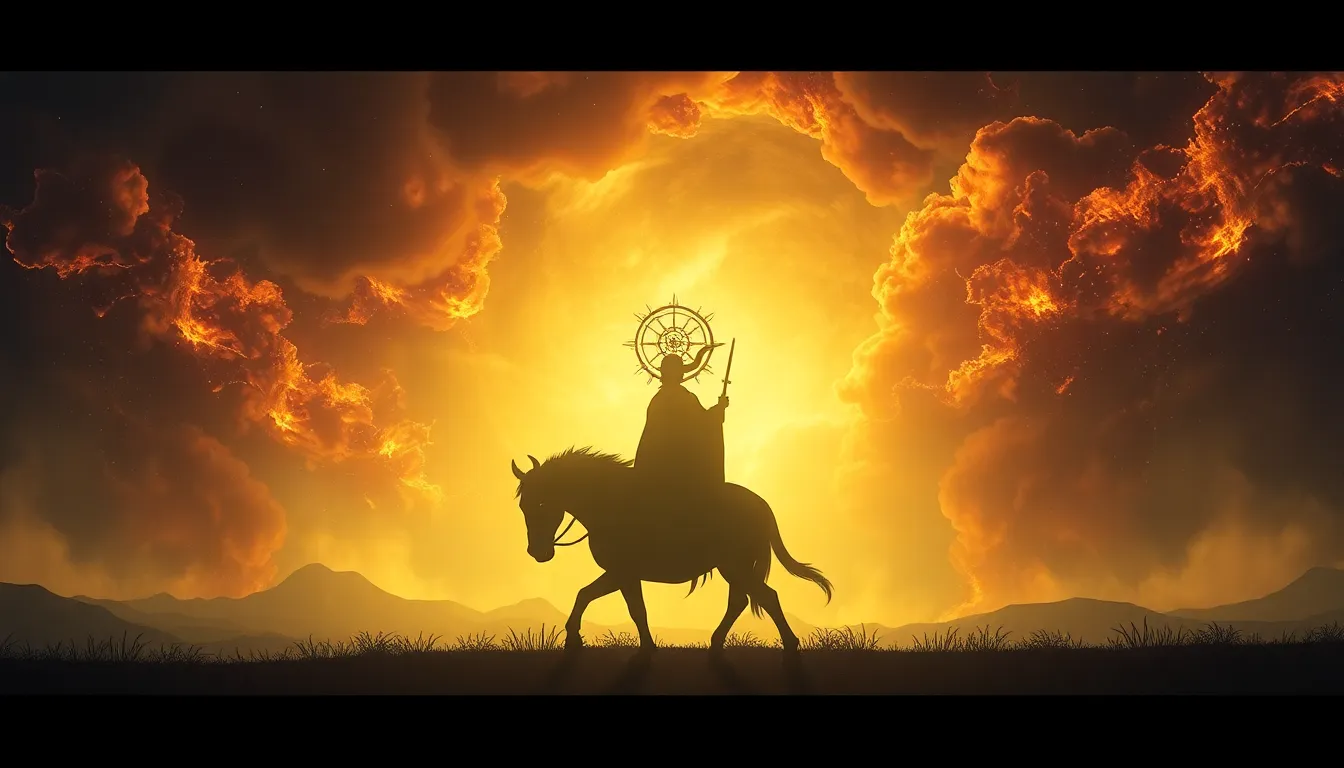Moral Myths and the Human Experience: A Universal Journey
1. Introduction to Moral Myths
Moral myths are narratives that convey societal values, ethics, and principles that guide human behavior. These myths serve as frameworks through which individuals and societies interpret right and wrong, shaping their moral landscapes. The importance of moral myths lies in their ability to influence behavior, instill a sense of belonging, and unify communities around shared beliefs.
Across cultures, moral myths manifest in various forms, from ancient parables to modern narratives. Despite the diversity of these myths, there is a remarkable universality in their themes, highlighting common human experiences and moral dilemmas. This universality suggests that moral myths are a fundamental part of the human experience, transcending geographical and cultural boundaries.
2. The Psychological Underpinnings of Moral Myths
Moral myths profoundly impact individual psychology, shaping our beliefs, values, and behaviors. They often provide a sense of purpose and direction, influencing how we perceive ourselves and others. Cognitive biases, such as confirmation bias and the availability heuristic, play a crucial role in the acceptance and perpetuation of moral myths. These biases can lead individuals to favor information that aligns with their existing beliefs while dismissing contradictory evidence.
Emotions also significantly influence moral decision-making. Moral myths often evoke strong emotional responses, which can cloud rational judgment. For instance, feelings of guilt or shame can reinforce certain moral narratives, while feelings of pride or honor can promote others. This interplay between emotion and morality highlights the complexity of human decision-making processes.
3. Historical Perspectives on Moral Myths
Throughout history, ancient civilizations have crafted moral myths to explain the world around them and guide behavior. For example, the myths of ancient Greece, such as the tales of Hercules and Prometheus, served not only as entertainment but also as moral lessons about courage, sacrifice, and the consequences of hubris.
The evolution of moral myths reflects changing societal values and norms. As societies progress, so do their moral narratives, adapting to new contexts and challenges. Case studies, such as the transition from feudalistic moral codes in medieval Europe to the Enlightenment’s emphasis on individual rights, illustrate how moral myths can shift and evolve over time.
4. Moral Myths in Religious Contexts
Moral myths are integral to major world religions, providing ethical frameworks that guide adherents’ actions. For example, the parables of Jesus in Christianity, the teachings of the Buddha in Buddhism, and the stories of the prophets in Islam each communicate profound moral lessons.
Comparing moral myths across different faiths reveals both similarities and differences. Common themes include justice, compassion, and the struggle between good and evil. The impact of these religious moral myths on ethical behavior is significant, often serving as a foundation for laws and social norms within religious communities.
5. Cultural Variations in Moral Myths
Moral myths vary significantly from culture to culture, shaped by local contexts, histories, and values. In some cultures, collective well-being may be prioritized, while others may emphasize individual rights and freedoms. The significance of local context cannot be overstated, as it helps to shape the moral narratives that resonate within specific communities.
- For example, the concept of “Ubuntu” in African cultures emphasizes communal interdependence and shared humanity.
- In contrast, Western cultures often focus on individualism and personal achievement.
These cultural variations highlight the diversity of moral understanding and the ways in which different societies navigate moral dilemmas.
6. The Role of Myth in Modern Society
In contemporary society, moral myths manifest in various social issues, from debates on climate change to discussions about social justice. The narratives surrounding these issues often draw on established moral myths, framing them in ways that resonate with public sentiment.
The influence of media and technology has transformed the dissemination of moral myths, allowing them to spread rapidly and widely. Social media platforms serve as modern storytelling arenas where moral narratives can gain traction, influencing public opinion and shaping political discourse.
7. The Conflict Between Moral Myths and Science
There exists a notable tension between moral myths and scientific understanding. While moral myths often provide comforting narratives about human behavior and the world, scientific evidence may sometimes challenge these beliefs. For instance, myths surrounding the morality of certain practices may conflict with scientific findings regarding health or environmental sustainability.
Ethics plays a crucial role in scientific advancements, guiding researchers and practitioners in navigating moral dilemmas. Case studies where moral myths conflict with scientific evidence, such as debates on vaccination or genetic engineering, illustrate the complexities of aligning moral beliefs with empirical data.
8. The Future of Moral Myths in a Globalized World
Globalization is reshaping traditional moral myths, blending diverse narratives and creating new moral landscapes. As cultures interact and influence each other, there is potential for new moral myths to emerge in response to modern challenges such as climate change, inequality, and technological advancements.
Education plays a critical role in evolving moral narratives, fostering critical thinking and encouraging individuals to examine their beliefs. By engaging with diverse perspectives, individuals can develop a more nuanced understanding of morality that transcends cultural boundaries.
9. Personal Reflections on Moral Myths
As readers navigate their own moral beliefs, it is essential to reflect on the influence of moral myths in their lives. Personal experiences often shape one’s understanding of morality, leading to a complex web of beliefs that may challenge or reinforce established narratives.
Stories of individuals who have faced moral dilemmas influenced by myths can provide valuable insights. These narratives highlight the personal nature of morality and the importance of self-reflection in understanding one’s ethical framework.
10. Conclusion: The Enduring Power of Moral Myths
In summary, moral myths play a crucial role in shaping the human experience, influencing behavior, and providing frameworks for understanding complex ethical issues. The universality of these myths across cultures underscores their significance in our lives.
As we continue to navigate the challenges of modern society, it is essential to recognize the power of moral myths in shaping our beliefs and actions. Readers are encouraged to examine their own moral narratives, engage with diverse perspectives, and contribute to the ongoing dialogue about morality in our interconnected world.




